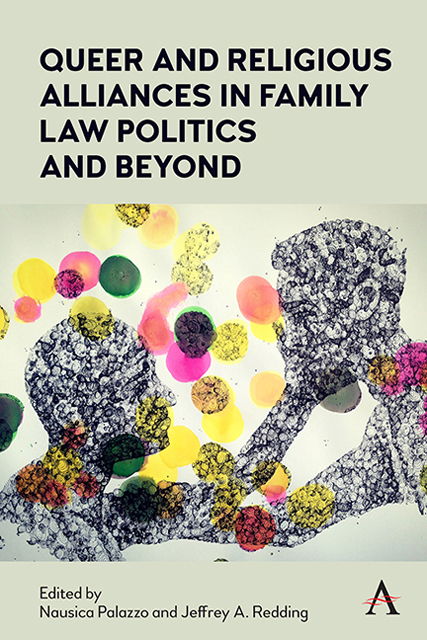Chapter 1 - Secularism, Same-Sex Relations, and Legal Pluralism
Published online by Cambridge University Press: 09 December 2022
Summary
This chapter aims to explain the historical and contemporary conceptual terrain over which queer and religious actors are operating, especially in relation to the state's recognition of same-sex relations. I first cast some light on the link between secularization and secularism with a view to determining what we are to understand by these terms. Then, I discuss an alternative view of secularization as an integral part of the state-building processes in Europe. In doing so, I explain why the theoretical toolkit of “legal pluralism” proves particularly enlightening in rethinking the role and place of sub-state normative regimes within states. Finally, I briefly apply my arguments to the ongoing struggle for same-sex marriage in numerous countries around the world. I argue that in a truly post-secular society the legal order should allow people—whether queer or religious—to produce “their own law” and make available a plurality of regulatory models.
Shortcomings of the Post-Secularization Thesis
The prefix of “post-secularization” conveys the idea of going beyond, but one needs to ask whether secularization is something one can really go beyond. I am not referring to the question of whether contemporary politics can dispense with secularization, but the question of whether or not secularization has ever existed as an actual phenomenon. If secularization never really occurred, talk of post-secularization runs two risks. First, it could tell a story that does not stand close scrutiny. Second, and more importantly, it could be contributing to a mistaken understanding of the historical processes it refers to. The case I want to make is that secularization was not so much an actual phenomenon as it was a narrative meant to produce reality. One of its main effects is what Charles Tilly identifies as “the major unanswered question in European history” (Tilly 1989, 563)—that is, the political form called “state.”
I am not arguing that secularization is something merely discursive concerning the modern state or that it merely played a role in the establishment of the fundamental distinction between the secular and the religious realms. As a signifier, secularization does refer to a bundle of both signified and actual phenomena.
- Type
- Chapter
- Information
- Publisher: Anthem PressPrint publication year: 2022

